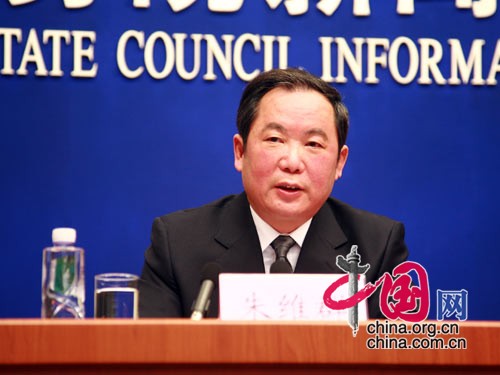Tibet to keep to its own path with or without the Dalai Lama
Tibet will keep to its own path with or without the Dalai Lama, said a Chinese central government official Tuesday.
The central government hoped the Dalai Lama, 75, could settle his affairs concerning his own prospects while still alive and would not pass away abroad, said Zhu Weiqun, executive vice minister of the United Front Work Department of the Communist Party of China (CPC) Central Committee, at a press conference.
|
|
|
Zhu Weiqun |
Asked if the central government would find a solution to the Tibet issue more difficult after the Dalai Lama's death, Zhu replied, "It is not polite in China to talk about the possibility of a 75-year-old man passing away. We hope he can live a long life."
The Dalai Lama should realize that some foreign forces, which supported him, may not help him, but trap him, he said.
"Since the armed rebellion in 1959, what did the Dalai Lama get except that he was pushed further and further away from the journey home?"
He suggested that his followers should ponder what they should do when the Dalai Lama departed this life.
Asked to comment on whether there would be an upsurge of violence and terrorist activities after the death of the Dalai Lama, Zhu said he believed most Tibetans living abroad loved peace and would like to contact their family and friends in Tibet and be engaged in Tibet's development.
It could not be ruled out that a few people would turn to violence, but history had showed that violence and terrorist activities would inevitably end in failure, he said.
In that case, they would no longer be disguised by a peace-loving image, but categorized as terrorists, he said.
 0
0 







